Maps of Germany

Aschersleben
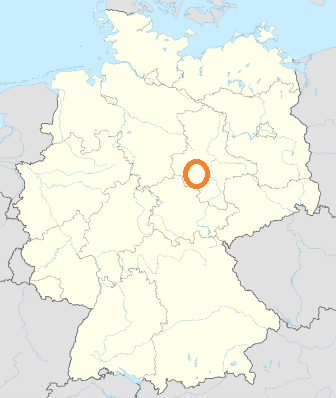
Aschersleben is a town in the Salzlandkreis district, in Saxony-Anhalt, Germany. It is situated approximately 22 km east of Quedlinburg, and 45 km northwest of Halle (Saale).
Augsburg
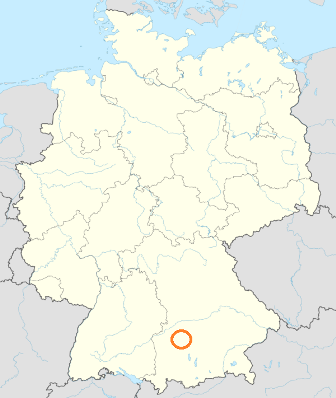
Augsburg is a city in Swabia, Bavaria, Germany. It was a Free Imperial City for over 500 years, and is notable for the Augsburg Confession.
Berlin
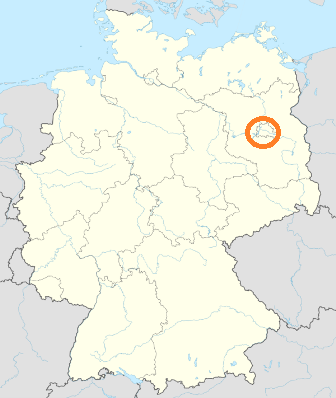
Berlin is the Capital City of Germany.
Bodenwöhr
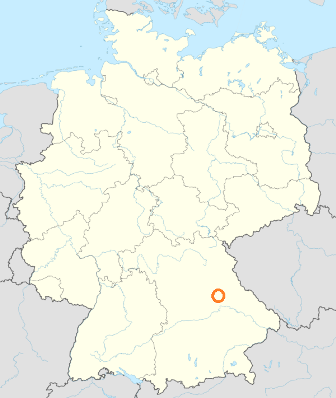
Bodenwöhr is a municipality in the district of Schwandorf in Bavaria, Germany.
Celle
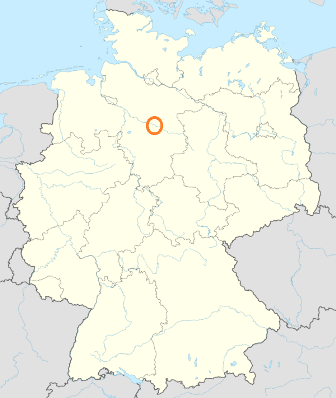
Celle is a town and capital of the district of Celle, in Lower Saxony, Germany. The town is situated on the banks of the River Aller, a tributary of the Weser.
Chemnitz
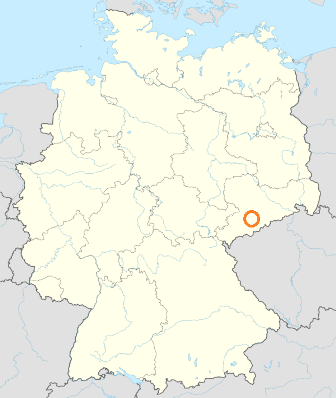
Chemnitz is located in the northern foothills of the Ore Mountains.
Dortmund
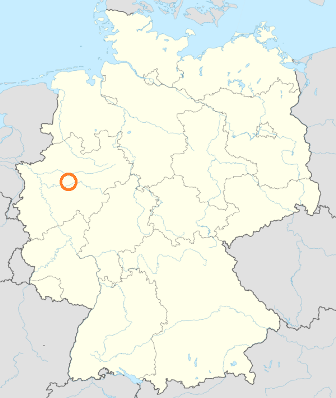
Dortmund is an independent city in North Rhine-Westphalia, Germany. It is in the middle part of the state and is considered to be the administrative, commercial and cultural centre of the eastern Ruhr area.
Dresden
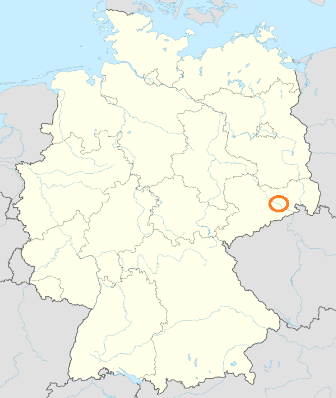
Dresden is the capital city and, after Leipzig, the second-largest city of the Free State of Saxony in Germany. It is situated in a valley on the River Elbe, near the border with the Czech Republic.
Düsseldorf
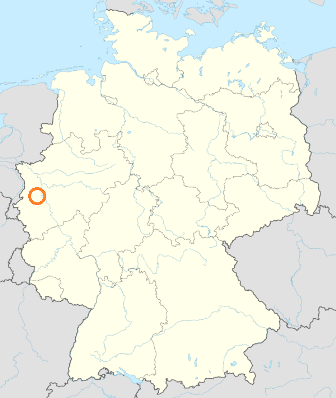
Located on the river Rhine, Düsseldorf is one of the central cities of the Rhine-Ruhr metropolitan area.
Emden
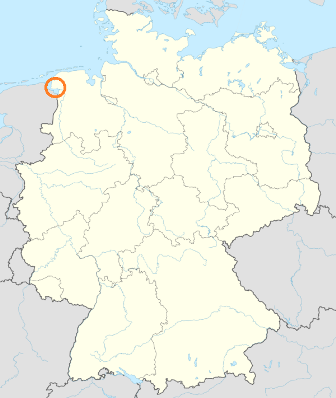
Emden is a town and seaport in Lower Saxony in the northwest of Germany, on the river Ems. It is the main town of the region of East Frisia. The town centre was almost completely wiped out as a result of Allied bombing raids during the Second World War, destroying nearly all historic buildings. The RAF first bombed Emden on 31 March 1940. The most severe bombing took place on 6 September 1944, when roughly 80 percent of all houses in the town centre were destroyed.
Erfurt
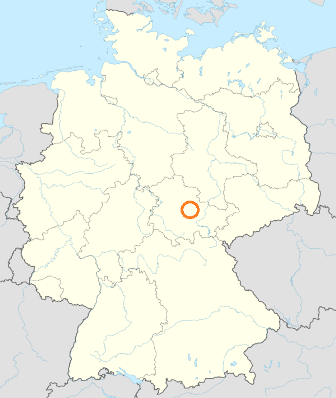
Erfurt is the capital and largest city in the state of Thuringia, central Germany. It lies in the southern part of the Thuringian Basin, within the wide valley of the Gera river. It is located 100 km (62 mi) south-west of Leipzig, 300 km (186 mi) south-west of Berlin, 400 km (249 mi) north of Munich and 250 km (155 mi) north-east of Frankfurt. Together with neighbouring cities Weimar and Jena it forms the central metropolitan area of Thuringia.
Frankfurt
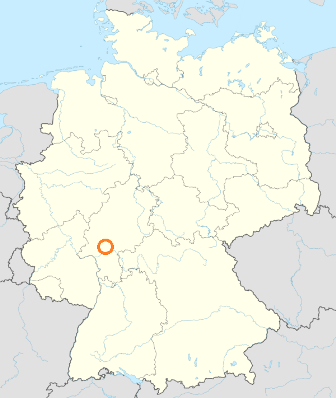
Frankfurt, officially Frankfurt am Main (Literally "Frankfurt on Main"), it is the largest city in the German state of Hesse and the fifth-largest city in Germany.
Freital
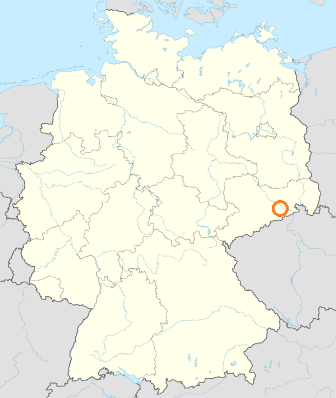
Freital is located southwest of Dresden in the Döhlen Basin, through which the Weißeritz flows from south-west to north-east. The Windberg hill, is the town's local mountain and well-known landmark, rising about 100 metres above the valley floor. The lowest part of the town is the point where the Weißeritz enters the territory of the city of Dresden (about 195 metres above sea level).
Gorlitz
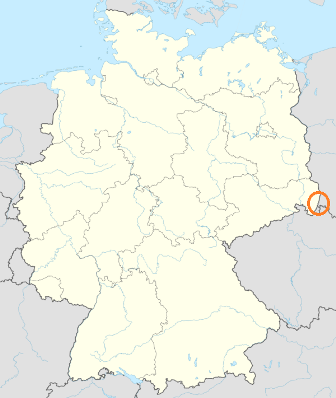
Görlitz is a town in the German federal state of Saxony. Located in the region of Lusatia on the Lusatian Neisse River, it is the second largest town of Lusatia after Cottbus, and the largest in Upper Lusatia. Görlitz is the capital of the district of Görlitz, the easternmost district of Germany. It lies opposite the Polish town of Zgorzelec, which was a part of Görlitz until 1945.
Halle
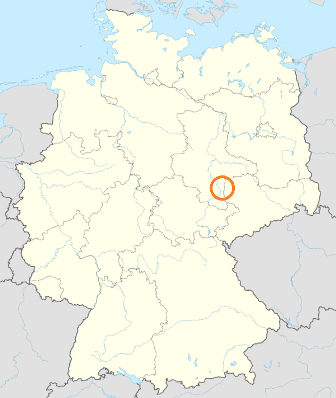
Halle (Saale) is in the southern part of Saxony-Anhalt, along the river Saale.
Hamburg

Hamburg is a large German city and major sea port located on the river Elbe in Northern Germany.
Hannover
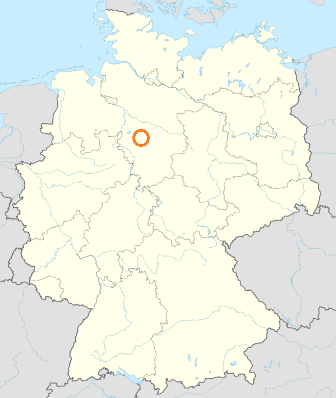
Hannover, on the River Leine, is the capital and largest city of the German state of Lower Saxony (Niedersachsen), and was once by personal union the family seat of the Hanoverian Kings. At the end of the Napoleonic Wars, the Electorate was enlarged to become a Kingdom with Hanover as its capital.
Heidelberg
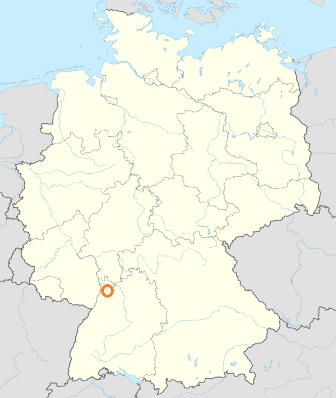
Heidelberg is a town in Baden-Württemberg situated on the river Neckar in south-west Germany. Located about 78 km (48 mi) south of Frankfurt, Heidelberg is the fifth-largest city in the German state of Baden-Württemberg and is part of the densely populated Rhine-Neckar Metropolitan Region.
Herschbach
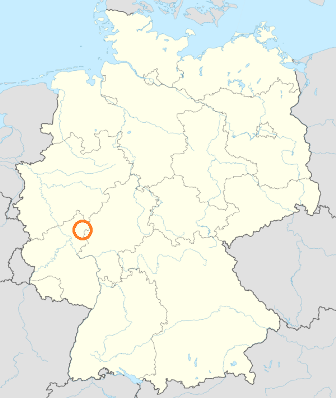
Herschbach (Upper Westerwald) is an a community belonging to a Verbandsgemeinde in the Westerwaldkreis in Rhineland-Palatinate , Germany. It belongs to the Association of Wallmerod, a collective municipality.
Hessental
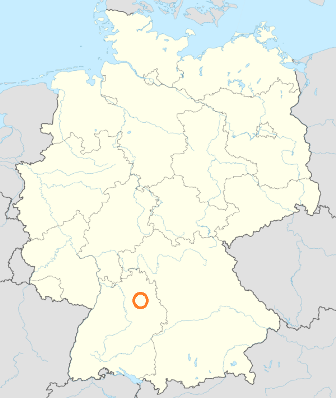
Hessental is a town in the German state of Baden-Württemberg and capital of the district of Schwäbisch Hall. The town is located in the valley of the Kocher river in the north-eastern part of Baden-Württemberg.
Hildburghausen
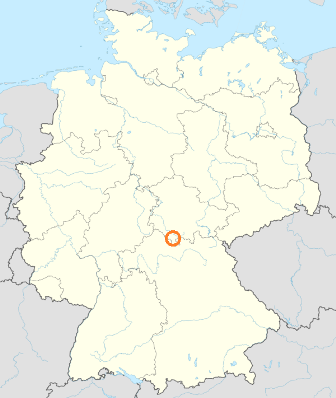
Hildburghausen is a town in Thuringia in central Germany, capital of the district Hildburghausen. It is situated in the Franconian part of Thuringia south of the Thuringian Forest, in the valley of the Werra river. The town centre is located about 20 km (12 mi) south of Suhl and 20 km (12 mi) northwest of Coburg.
Hockenheim
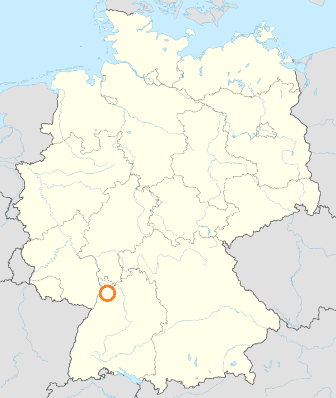
Hockenheim is a town in northwest Baden-Württemberg, Germany, about 20 km south of Mannheim and 10 km west of Walldorf. It is located in the Upper Rhine valley. Hockenheim is one of the six largest towns in the Rhein-Neckar-Kreis district.
Kiel
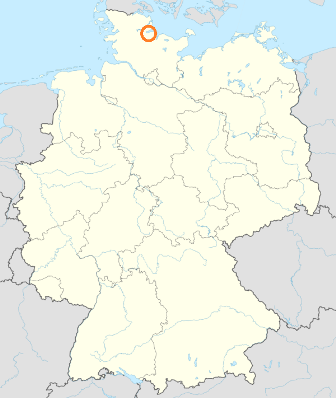
Kiel is the capital and most populous city in the northern German state of Schleswig-Holstein. Kiel lies approximately 90 kilometres (56 mi) north of Hamburg. Kiel is located in the north of Germany on the southeast of the Jutland peninsula and the southwestern shore of the Baltic Sea.
Koln
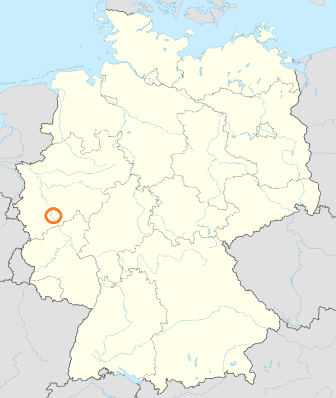
Cologne is located on both sides of the Rhine, near Germany's borders with Belgium and the Netherlands. During the Bombing of Cologne in World War II, Cologne endured 262 air raids by the Western Allies, which caused approximately 20,000 civilian casualties and almost completely wiped out the central part of the city. During the night of 31 May 1942, Cologne was the target of "Operation Millennium", the first 1,000 bomber raid by the Royal Air Force in World War II. 1,046 heavy bombers attacked their target with 1,455 tons of explosives, approximately two-thirds of which were incendiary. This raid lasted about 75 minutes, destroyed 600 acres (243 ha) of built-up area (61%), killed 486 civilians and made 59,000 people homeless.
Krefeld
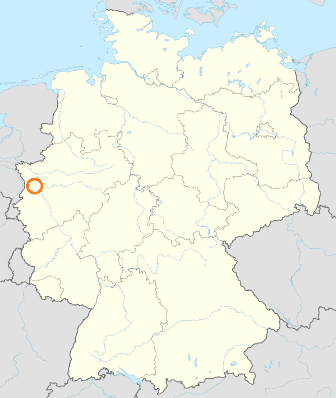
Krefeld, also known as Crefeld until 1929, is a city in North Rhine-Westphalia, Germany. It is located northwest of Düsseldorf, its centre lying just a few kilometres to the west of the river Rhine.
Krems
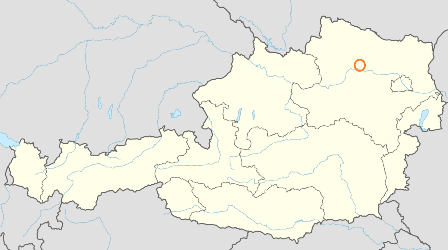
Krems an der Donau is a town in Austria, in the federal state of Lower Austria. It is the fifth-largest city of Lower Austria and is approximately 70 kilometres (43 miles) west of Vienna. Krems is a city with its own statute (or Statutarstadt), and therefore it is both a municipality and a district.
Leipzig
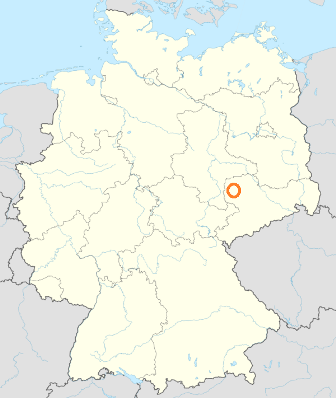
Leipzig is located about 160 kilometres (99 mi) southwest of Berlin at the confluence of the White Elster, Pleisse, and Parthe rivers at the southern end of the North German Plain.
Mannheim
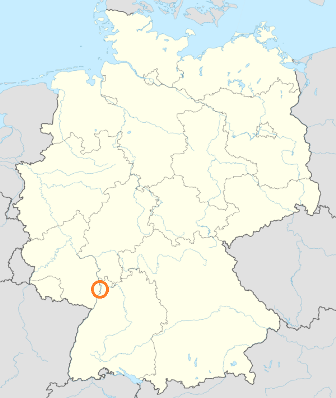
Mannheim is a city in the southwestern part of Germany, the third-largest in the German state of Baden-Württemberg after Stuttgart and Karlsruhe. The city is at the centre of the larger densely populated Rhine-Neckar Metropolitan Region and is Germany's eighth-largest metropolitan region. Mannheim is located at the confluence of the Rhine and the Neckar in the northwestern corner of Baden-Württemberg. The Rhine separates Mannheim from the city of Ludwigshafen, just to the west of it in Rhineland-Palatinate, and the border of Baden-Württemberg with Hesse is just to the north. Mannheim is downstream along the Neckar from the city of Heidelberg.
Memel
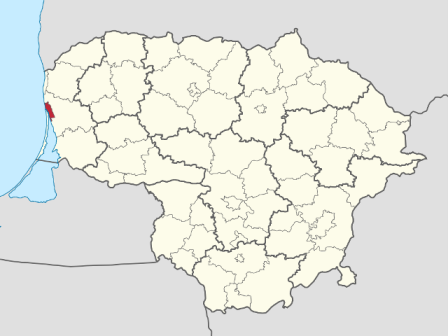
Memel is a Baltic seaport that is now part of Lithuania.
München

München is the capital and the most populated city in the German state of Bavaria, on the banks of River Isar north of the Bavarian Alps. Munich is also the third largest city in Germany, after Berlin and Hamburg.
Nürnberg
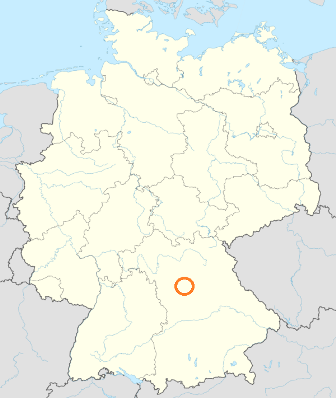
Nürnberg is a city on the river Pegnitz and on the Rhine–Main–Danube Canal in the German state of Bavaria, in the administrative region of Middle Franconia, about 170 kilometres (110 mi) north of Munich. It is the second-largest city in Bavaria (after Munich), and the largest in Franconia. The urban area also includes Fürth, Erlangen and Schwabach.
Obersalzberg
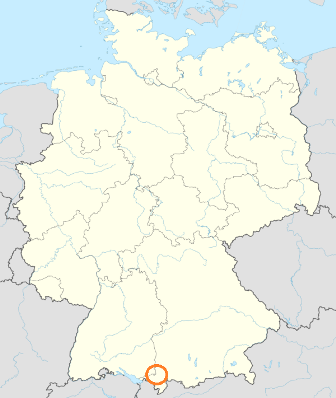
Obersalzberg is a mountainside retreat situated above the market town of Berchtesgaden in Bavaria, Germany. Located about 120 kilometres (75 mi) southeast of Munich, close to the border with Austria, it is best known as the site of Adolf Hitler's former mountain residence, the Berghof and of the mountaintop Kehlsteinhaus, popularly known in the English-speaking world as the "Eagle's Nest". All of the Nazi buildings were demolished in the 1950s but the relevant past of the area is subject of the Dokumentationszentrum Obersalzberg museum which opened in 1999.
Pasewalk
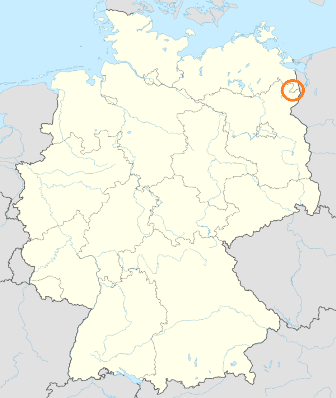
Pasewalk is a town in the Vorpommern-Greifswald district, in the state of Mecklenburg-Vorpommern in Germany. Located on the Uecker river, it is the capital of the former Uecker-Randow district.
Potsdam
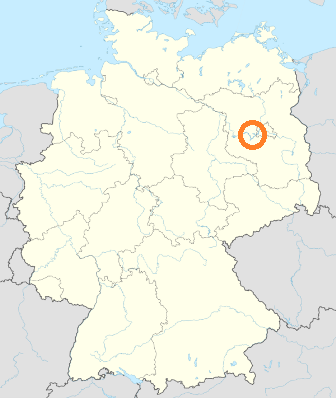
Potsdam is the capital and largest city of the German federal state of Brandenburg. It directly borders the German capital, Berlin. It is situated on the River Havel 24 kilometres (15 miles) southwest of Berlin's city centre.
Sangerhausen
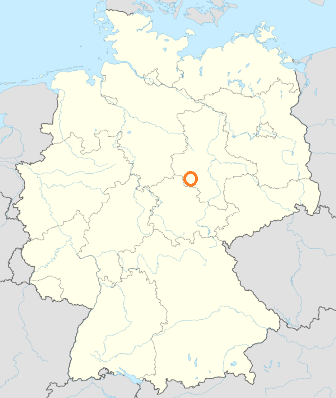
Sangerhausen is a town in Saxony-Anhalt, Germany, capital of the district of Mansfeld-Südharz, without being part of it. It is situated southeast of the Harz, approx. 35 kilometres (22 miles) east of Nordhausen, and 50 km (31 mi) west of Halle (Saale).
Wiesbaden
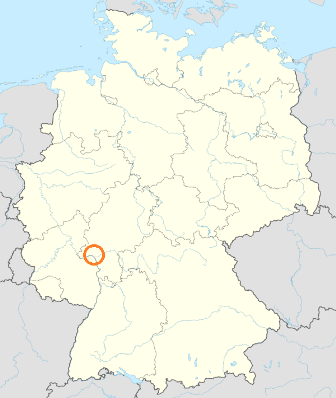
Wiesbaden is a city in central western Germany and the capital of the federal state of Hesse. Wiesbaden is one of the oldest spa towns in Europe. Its name translates to "meadow baths", making reference to the hot springs. It is internationally famous for its architecture, climate (also called the "Nice of the North"), and its hot springs.
Wuppertal
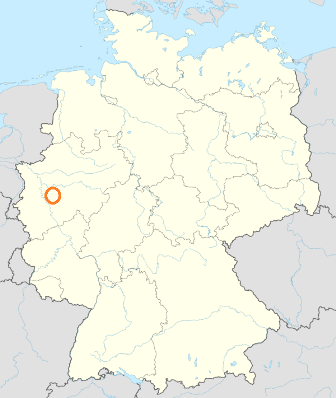
Wuppertal is a city in North Rhine-Westphalia, Germany, in and around the Wupper valley, east of Düsseldorf and south of the Ruhr. It is the largest city in the Bergisches Land. Wuppertal is known for its steep slopes, its woods and parks.
Zeitz
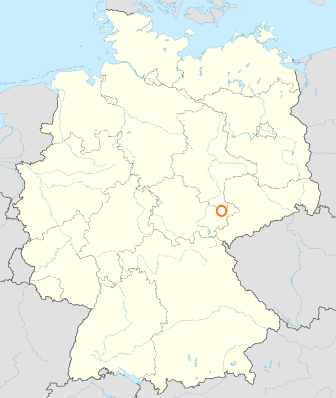
Zeitz is a town in the Burgenlandkreis district, in Saxony-Anhalt, Germany. It is situated on the river Weiße Elster, in the triangle of the federal states Saxony-Anhalt, Thuringia and Saxony. A bombing target of the Oil Campaign of World War II, the Brabag plant northeast of Zeitz used lignite coal to synthesize ersatz oil – forced labor was provided by the nearby Wille subcamp of Buchenwald in Rehmsdorf and Gleina.

This page was last updated
06-Aug-2021 04:36

 Aschersleben is a town in the Salzlandkreis district, in Saxony-Anhalt, Germany. It is situated approximately 22 km east of Quedlinburg, and 45 km northwest of Halle (Saale).
Aschersleben is a town in the Salzlandkreis district, in Saxony-Anhalt, Germany. It is situated approximately 22 km east of Quedlinburg, and 45 km northwest of Halle (Saale). Augsburg is a city in Swabia, Bavaria, Germany. It was a Free Imperial City for over 500 years, and is notable for the Augsburg Confession.
Augsburg is a city in Swabia, Bavaria, Germany. It was a Free Imperial City for over 500 years, and is notable for the Augsburg Confession. Berlin is the Capital City of Germany.
Berlin is the Capital City of Germany.
 Bodenwöhr is a municipality in the district of Schwandorf in Bavaria, Germany.
Bodenwöhr is a municipality in the district of Schwandorf in Bavaria, Germany. Celle is a town and capital of the district of Celle, in Lower Saxony, Germany. The town is situated on the banks of the River Aller, a tributary of the Weser.
Celle is a town and capital of the district of Celle, in Lower Saxony, Germany. The town is situated on the banks of the River Aller, a tributary of the Weser. Chemnitz is located in the northern foothills of the Ore Mountains.
Chemnitz is located in the northern foothills of the Ore Mountains. Dortmund is an independent city in North Rhine-Westphalia, Germany. It is in the middle part of the state and is considered to be the administrative, commercial and cultural centre of the eastern Ruhr area.
Dortmund is an independent city in North Rhine-Westphalia, Germany. It is in the middle part of the state and is considered to be the administrative, commercial and cultural centre of the eastern Ruhr area.
 Dresden is the capital city and, after Leipzig, the second-largest city of the Free State of Saxony in Germany. It is situated in a valley on the River Elbe, near the border with the Czech Republic.
Dresden is the capital city and, after Leipzig, the second-largest city of the Free State of Saxony in Germany. It is situated in a valley on the River Elbe, near the border with the Czech Republic. Located on the river Rhine, Düsseldorf is one of the central cities of the Rhine-Ruhr metropolitan area.
Located on the river Rhine, Düsseldorf is one of the central cities of the Rhine-Ruhr metropolitan area. Emden is a town and seaport in Lower Saxony in the northwest of Germany, on the river Ems. It is the main town of the region of East Frisia. The town centre was almost completely wiped out as a result of Allied bombing raids during the Second World War, destroying nearly all historic buildings. The RAF first bombed Emden on 31 March 1940. The most severe bombing took place on 6 September 1944, when roughly 80 percent of all houses in the town centre were destroyed.
Emden is a town and seaport in Lower Saxony in the northwest of Germany, on the river Ems. It is the main town of the region of East Frisia. The town centre was almost completely wiped out as a result of Allied bombing raids during the Second World War, destroying nearly all historic buildings. The RAF first bombed Emden on 31 March 1940. The most severe bombing took place on 6 September 1944, when roughly 80 percent of all houses in the town centre were destroyed. Erfurt is the capital and largest city in the state of Thuringia, central Germany. It lies in the southern part of the Thuringian Basin, within the wide valley of the Gera river. It is located 100 km (62 mi) south-west of Leipzig, 300 km (186 mi) south-west of Berlin, 400 km (249 mi) north of Munich and 250 km (155 mi) north-east of Frankfurt. Together with neighbouring cities Weimar and Jena it forms the central metropolitan area of Thuringia.
Erfurt is the capital and largest city in the state of Thuringia, central Germany. It lies in the southern part of the Thuringian Basin, within the wide valley of the Gera river. It is located 100 km (62 mi) south-west of Leipzig, 300 km (186 mi) south-west of Berlin, 400 km (249 mi) north of Munich and 250 km (155 mi) north-east of Frankfurt. Together with neighbouring cities Weimar and Jena it forms the central metropolitan area of Thuringia. Frankfurt, officially Frankfurt am Main (Literally "Frankfurt on Main"), it is the largest city in the German state of Hesse and the fifth-largest city in Germany.
Frankfurt, officially Frankfurt am Main (Literally "Frankfurt on Main"), it is the largest city in the German state of Hesse and the fifth-largest city in Germany. Freital is located southwest of Dresden in the Döhlen Basin, through which the Weißeritz flows from south-west to north-east. The Windberg hill, is the town's local mountain and well-known landmark, rising about 100 metres above the valley floor. The lowest part of the town is the point where the Weißeritz enters the territory of the city of Dresden (about 195 metres above sea level).
Freital is located southwest of Dresden in the Döhlen Basin, through which the Weißeritz flows from south-west to north-east. The Windberg hill, is the town's local mountain and well-known landmark, rising about 100 metres above the valley floor. The lowest part of the town is the point where the Weißeritz enters the territory of the city of Dresden (about 195 metres above sea level).
 Görlitz is a town in the German federal state of Saxony. Located in the region of Lusatia on the Lusatian Neisse River, it is the second largest town of Lusatia after Cottbus, and the largest in Upper Lusatia. Görlitz is the capital of the district of Görlitz, the easternmost district of Germany. It lies opposite the Polish town of Zgorzelec, which was a part of Görlitz until 1945.
Görlitz is a town in the German federal state of Saxony. Located in the region of Lusatia on the Lusatian Neisse River, it is the second largest town of Lusatia after Cottbus, and the largest in Upper Lusatia. Görlitz is the capital of the district of Görlitz, the easternmost district of Germany. It lies opposite the Polish town of Zgorzelec, which was a part of Görlitz until 1945.
 Halle (Saale) is in the southern part of Saxony-Anhalt, along the river Saale.
Halle (Saale) is in the southern part of Saxony-Anhalt, along the river Saale. Hamburg is a large German city and major sea port located on the river Elbe in Northern Germany.
Hamburg is a large German city and major sea port located on the river Elbe in Northern Germany. Hannover, on the River Leine, is the capital and largest city of the German state of Lower Saxony (Niedersachsen), and was once by personal union the family seat of the Hanoverian Kings. At the end of the Napoleonic Wars, the Electorate was enlarged to become a Kingdom with Hanover as its capital.
Hannover, on the River Leine, is the capital and largest city of the German state of Lower Saxony (Niedersachsen), and was once by personal union the family seat of the Hanoverian Kings. At the end of the Napoleonic Wars, the Electorate was enlarged to become a Kingdom with Hanover as its capital. Heidelberg is a town in Baden-Württemberg situated on the river Neckar in south-west Germany. Located about 78 km (48 mi) south of Frankfurt, Heidelberg is the fifth-largest city in the German state of Baden-Württemberg and is part of the densely populated Rhine-Neckar Metropolitan Region.
Heidelberg is a town in Baden-Württemberg situated on the river Neckar in south-west Germany. Located about 78 km (48 mi) south of Frankfurt, Heidelberg is the fifth-largest city in the German state of Baden-Württemberg and is part of the densely populated Rhine-Neckar Metropolitan Region.
 Herschbach (Upper Westerwald) is an a community belonging to a Verbandsgemeinde in the Westerwaldkreis in Rhineland-Palatinate , Germany. It belongs to the Association of Wallmerod, a collective municipality.
Herschbach (Upper Westerwald) is an a community belonging to a Verbandsgemeinde in the Westerwaldkreis in Rhineland-Palatinate , Germany. It belongs to the Association of Wallmerod, a collective municipality.
 Hessental is a town in the German state of Baden-Württemberg and capital of the district of Schwäbisch Hall. The town is located in the valley of the Kocher river in the north-eastern part of Baden-Württemberg.
Hessental is a town in the German state of Baden-Württemberg and capital of the district of Schwäbisch Hall. The town is located in the valley of the Kocher river in the north-eastern part of Baden-Württemberg. Hildburghausen is a town in Thuringia in central Germany, capital of the district Hildburghausen. It is situated in the Franconian part of Thuringia south of the Thuringian Forest, in the valley of the Werra river. The town centre is located about 20 km (12 mi) south of Suhl and 20 km (12 mi) northwest of Coburg.
Hildburghausen is a town in Thuringia in central Germany, capital of the district Hildburghausen. It is situated in the Franconian part of Thuringia south of the Thuringian Forest, in the valley of the Werra river. The town centre is located about 20 km (12 mi) south of Suhl and 20 km (12 mi) northwest of Coburg. Hockenheim is a town in northwest Baden-Württemberg, Germany, about 20 km south of Mannheim and 10 km west of Walldorf. It is located in the Upper Rhine valley. Hockenheim is one of the six largest towns in the Rhein-Neckar-Kreis district.
Hockenheim is a town in northwest Baden-Württemberg, Germany, about 20 km south of Mannheim and 10 km west of Walldorf. It is located in the Upper Rhine valley. Hockenheim is one of the six largest towns in the Rhein-Neckar-Kreis district. Kiel is the capital and most populous city in the northern German state of Schleswig-Holstein. Kiel lies approximately 90 kilometres (56 mi) north of Hamburg. Kiel is located in the north of Germany on the southeast of the Jutland peninsula and the southwestern shore of the Baltic Sea.
Kiel is the capital and most populous city in the northern German state of Schleswig-Holstein. Kiel lies approximately 90 kilometres (56 mi) north of Hamburg. Kiel is located in the north of Germany on the southeast of the Jutland peninsula and the southwestern shore of the Baltic Sea. Cologne is located on both sides of the Rhine, near Germany's borders with Belgium and the Netherlands. During the Bombing of Cologne in World War II, Cologne endured 262 air raids by the Western Allies, which caused approximately 20,000 civilian casualties and almost completely wiped out the central part of the city. During the night of 31 May 1942, Cologne was the target of "Operation Millennium", the first 1,000 bomber raid by the Royal Air Force in World War II. 1,046 heavy bombers attacked their target with 1,455 tons of explosives, approximately two-thirds of which were incendiary. This raid lasted about 75 minutes, destroyed 600 acres (243 ha) of built-up area (61%), killed 486 civilians and made 59,000 people homeless.
Cologne is located on both sides of the Rhine, near Germany's borders with Belgium and the Netherlands. During the Bombing of Cologne in World War II, Cologne endured 262 air raids by the Western Allies, which caused approximately 20,000 civilian casualties and almost completely wiped out the central part of the city. During the night of 31 May 1942, Cologne was the target of "Operation Millennium", the first 1,000 bomber raid by the Royal Air Force in World War II. 1,046 heavy bombers attacked their target with 1,455 tons of explosives, approximately two-thirds of which were incendiary. This raid lasted about 75 minutes, destroyed 600 acres (243 ha) of built-up area (61%), killed 486 civilians and made 59,000 people homeless. Krefeld, also known as Crefeld until 1929, is a city in North Rhine-Westphalia, Germany. It is located northwest of Düsseldorf, its centre lying just a few kilometres to the west of the river Rhine.
Krefeld, also known as Crefeld until 1929, is a city in North Rhine-Westphalia, Germany. It is located northwest of Düsseldorf, its centre lying just a few kilometres to the west of the river Rhine. Krems an der Donau is a town in Austria, in the federal state of Lower Austria. It is the fifth-largest city of Lower Austria and is approximately 70 kilometres (43 miles) west of Vienna. Krems is a city with its own statute (or Statutarstadt), and therefore it is both a municipality and a district.
Krems an der Donau is a town in Austria, in the federal state of Lower Austria. It is the fifth-largest city of Lower Austria and is approximately 70 kilometres (43 miles) west of Vienna. Krems is a city with its own statute (or Statutarstadt), and therefore it is both a municipality and a district. Leipzig is located about 160 kilometres (99 mi) southwest of Berlin at the confluence of the White Elster, Pleisse, and Parthe rivers at the southern end of the North German Plain.
Leipzig is located about 160 kilometres (99 mi) southwest of Berlin at the confluence of the White Elster, Pleisse, and Parthe rivers at the southern end of the North German Plain. Mannheim is a city in the southwestern part of Germany, the third-largest in the German state of Baden-Württemberg after Stuttgart and Karlsruhe. The city is at the centre of the larger densely populated Rhine-Neckar Metropolitan Region and is Germany's eighth-largest metropolitan region. Mannheim is located at the confluence of the Rhine and the Neckar in the northwestern corner of Baden-Württemberg. The Rhine separates Mannheim from the city of Ludwigshafen, just to the west of it in Rhineland-Palatinate, and the border of Baden-Württemberg with Hesse is just to the north. Mannheim is downstream along the Neckar from the city of Heidelberg.
Mannheim is a city in the southwestern part of Germany, the third-largest in the German state of Baden-Württemberg after Stuttgart and Karlsruhe. The city is at the centre of the larger densely populated Rhine-Neckar Metropolitan Region and is Germany's eighth-largest metropolitan region. Mannheim is located at the confluence of the Rhine and the Neckar in the northwestern corner of Baden-Württemberg. The Rhine separates Mannheim from the city of Ludwigshafen, just to the west of it in Rhineland-Palatinate, and the border of Baden-Württemberg with Hesse is just to the north. Mannheim is downstream along the Neckar from the city of Heidelberg. Memel is a Baltic seaport that is now part of Lithuania.
Memel is a Baltic seaport that is now part of Lithuania. München is the capital and the most populated city in the German state of Bavaria, on the banks of River Isar north of the Bavarian Alps. Munich is also the third largest city in Germany, after Berlin and Hamburg.
München is the capital and the most populated city in the German state of Bavaria, on the banks of River Isar north of the Bavarian Alps. Munich is also the third largest city in Germany, after Berlin and Hamburg. Nürnberg is a city on the river Pegnitz and on the Rhine–Main–Danube Canal in the German state of Bavaria, in the administrative region of Middle Franconia, about 170 kilometres (110 mi) north of Munich. It is the second-largest city in Bavaria (after Munich), and the largest in Franconia. The urban area also includes Fürth, Erlangen and Schwabach.
Nürnberg is a city on the river Pegnitz and on the Rhine–Main–Danube Canal in the German state of Bavaria, in the administrative region of Middle Franconia, about 170 kilometres (110 mi) north of Munich. It is the second-largest city in Bavaria (after Munich), and the largest in Franconia. The urban area also includes Fürth, Erlangen and Schwabach. Obersalzberg is a mountainside retreat situated above the market town of Berchtesgaden in Bavaria, Germany. Located about 120 kilometres (75 mi) southeast of Munich, close to the border with Austria, it is best known as the site of Adolf Hitler's former mountain residence, the Berghof and of the mountaintop Kehlsteinhaus, popularly known in the English-speaking world as the "Eagle's Nest". All of the Nazi buildings were demolished in the 1950s but the relevant past of the area is subject of the Dokumentationszentrum Obersalzberg museum which opened in 1999.
Obersalzberg is a mountainside retreat situated above the market town of Berchtesgaden in Bavaria, Germany. Located about 120 kilometres (75 mi) southeast of Munich, close to the border with Austria, it is best known as the site of Adolf Hitler's former mountain residence, the Berghof and of the mountaintop Kehlsteinhaus, popularly known in the English-speaking world as the "Eagle's Nest". All of the Nazi buildings were demolished in the 1950s but the relevant past of the area is subject of the Dokumentationszentrum Obersalzberg museum which opened in 1999. Pasewalk is a town in the Vorpommern-Greifswald district, in the state of Mecklenburg-Vorpommern in Germany. Located on the Uecker river, it is the capital of the former Uecker-Randow district.
Pasewalk is a town in the Vorpommern-Greifswald district, in the state of Mecklenburg-Vorpommern in Germany. Located on the Uecker river, it is the capital of the former Uecker-Randow district. Potsdam is the capital and largest city of the German federal state of Brandenburg. It directly borders the German capital, Berlin. It is situated on the River Havel 24 kilometres (15 miles) southwest of Berlin's city centre.
Potsdam is the capital and largest city of the German federal state of Brandenburg. It directly borders the German capital, Berlin. It is situated on the River Havel 24 kilometres (15 miles) southwest of Berlin's city centre. Sangerhausen is a town in Saxony-Anhalt, Germany, capital of the district of Mansfeld-Südharz, without being part of it. It is situated southeast of the Harz, approx. 35 kilometres (22 miles) east of Nordhausen, and 50 km (31 mi) west of Halle (Saale).
Sangerhausen is a town in Saxony-Anhalt, Germany, capital of the district of Mansfeld-Südharz, without being part of it. It is situated southeast of the Harz, approx. 35 kilometres (22 miles) east of Nordhausen, and 50 km (31 mi) west of Halle (Saale). Wiesbaden is a city in central western Germany and the capital of the federal state of Hesse. Wiesbaden is one of the oldest spa towns in Europe. Its name translates to "meadow baths", making reference to the hot springs. It is internationally famous for its architecture, climate (also called the "Nice of the North"), and its hot springs.
Wiesbaden is a city in central western Germany and the capital of the federal state of Hesse. Wiesbaden is one of the oldest spa towns in Europe. Its name translates to "meadow baths", making reference to the hot springs. It is internationally famous for its architecture, climate (also called the "Nice of the North"), and its hot springs. Wuppertal is a city in North Rhine-Westphalia, Germany, in and around the Wupper valley, east of Düsseldorf and south of the Ruhr. It is the largest city in the Bergisches Land. Wuppertal is known for its steep slopes, its woods and parks.
Wuppertal is a city in North Rhine-Westphalia, Germany, in and around the Wupper valley, east of Düsseldorf and south of the Ruhr. It is the largest city in the Bergisches Land. Wuppertal is known for its steep slopes, its woods and parks. Zeitz is a town in the Burgenlandkreis district, in Saxony-Anhalt, Germany. It is situated on the river Weiße Elster, in the triangle of the federal states Saxony-Anhalt, Thuringia and Saxony. A bombing target of the Oil Campaign of World War II, the Brabag plant northeast of Zeitz used lignite coal to synthesize ersatz oil – forced labor was provided by the nearby Wille subcamp of Buchenwald in Rehmsdorf and Gleina.
Zeitz is a town in the Burgenlandkreis district, in Saxony-Anhalt, Germany. It is situated on the river Weiße Elster, in the triangle of the federal states Saxony-Anhalt, Thuringia and Saxony. A bombing target of the Oil Campaign of World War II, the Brabag plant northeast of Zeitz used lignite coal to synthesize ersatz oil – forced labor was provided by the nearby Wille subcamp of Buchenwald in Rehmsdorf and Gleina.

